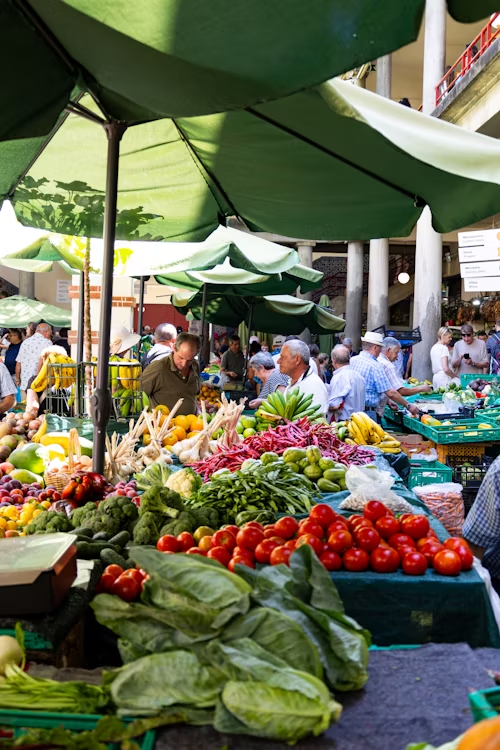Exploring the Impact of Farm Fresh Food Through Effective Farmers Market Management

The resurgence of farmers markets in recent years highlights a growing consumer interest in farm fresh food and its benefits for health and local economies. This interest not only supports sustainable agricultural practices but also plays a crucial role in connecting communities. Effective farmers market management ensures that these hubs of local agriculture operate smoothly, benefiting both consumers and producers. By exploring how farmers markets are managed and their impact on communities, we can better appreciate the value they bring to our daily lives.
The Allure of Farm Fresh Food
Farm fresh food is revered for its quality and freshness. It's sourced directly from local farms, often harvested within 24 hours of reaching the market. This section of the food industry not only helps in maintaining nutritional content but also in providing flavor that is often lost in mass-produced food items. Here’s why farm fresh food continues to captivate the palate of the health-conscious consumer:
- Enhanced Flavor and Nutrition: Foods that do not undergo long transport periods retain their natural taste and nutritional value.
- Seasonal Variety: Consumers enjoy a variety of produce that changes with the seasons, offering unique flavors and fostering culinary creativity.
- Chemical Reduction Exposure: Many farmers markets feature organic or minimally-treated produce, reducing consumer exposure to pesticides and chemicals.
- Support for Local Economies: Purchasing farm fresh food supports local farmers and keeps money within the community, promoting economic stability.
Given these advantages, the demand for farm fresh foods has led to a growth in the number and scale of farmers markets, which themselves require careful organization and management to function effectively.
The Role of Farmers Market Management
Effective farmers market management is crucial for the success of these markets. It involves several aspects, from logistics and vendor coordination to marketing and community engagement. Here’s how proper management practices influence the operations of farmers markets:
- Vendor Selection and Management: Managers need to ensure a diverse mix of stalls, offering customers a wide range of products.
- Site Planning and Amenities: Effective layout planning helps in traffic flow of customers and ensures accessibility, including adequate parking, restrooms, and disability access.
- Health and Safety Regulations: Adhering to local health regulations and safety standards is critical to operate smoothly and sustainably.
- Community and Stakeholder Engagement: Successful markets operate with community input and support, fostering a sense of ownership and loyalty among local residents.
Through robust management, farmers markets can thrive as community hubs where people not only come to buy fresh products but also to meet farmers, understand their food sources, and engage with their community.
Connecting Communities Through Farmers Markets
Farmers markets are more than just places to buy food. They are vibrant social spaces that bring together people from all walks of life. Here are some ways in which farmers markets help in connecting communities:
- Social Interaction Space: Markets provide a place for friends and family to meet, discuss and share experiences in a relaxed environment.
- Educational Opportunities: Many markets host cooking demonstrations, farming education sessions, and discussions on nutrition that provide learning opportunities.
- Platform for Local Businesses: Small businesses and new entrepreneurs often find farmers markets a welcoming space to showcase their products without the overheads of a retail shop.
- Cultural Events: Markets frequently serve as venues for local cultural events, enriching community life and fostering greater appreciation of local traditions and crafts.
These interactions not only enrich the community's social fabric but also create economic interdependencies that build stronger local economies. Farmers markets are pivotal in forging sustainable community links, with market management often playing a facilitative role in these processes.
Optimizing Farmers Market Operations for Broader Impact
To maximize their impact, farmers markets must operate efficiently and responsively. This involves not just day-to-day management but also strategic planning for future growth and sustainability. Effective operation strategies include:
- Utilizing Technology: From social media marketing to inventory management software, technology can enhance the reach and efficiency of market operations.
- Regular Vendor Feedback: Gathering and acting on feedback from vendors can help in addressing their concerns and improving market conditions.
- Customer Engagement Strategies: Employing loyalty programs, special event days, and interactive activities can keep customers returning.
- Sustainability Practices: Implementing eco-friendly practices such as waste reduction programs, and encouraging reusable materials can attract environmentally conscious consumers.
By focusing on these aspects, farmers markets can not only enhance their operational efficiency but also increase their impact on local communities and economies.
Conclusion: The Future of Farmers Markets
As we look towards the future, the role of farmers markets is set to become even more significant. With an increasing awareness of the benefits of farm fresh food and a growing desire for community engagement, these markets are poised for greater growth and deeper community integration. Effective management and innovative operations strategies will be key to sustaining this growth and ensuring that farmers markets continue to be cherished local institutions that offer significant health, economic, and social benefits.
Embracing the full potential of farmers markets means continuing to invest in the people and processes that make them thrive. With thoughtful management and a commitment to community connection, farmers markets can continue to be a vital part of our local food systems and community life.



